
- Call us for any queries(+91) 98311 55513
- Test Appointment


A Pathology Laboratory, also known as a Diagnostic or Clinical Lab, is a specialized facility where biological samples—such as blood, urine, tissue, or other body fluids—are examined to detect diseases, monitor health, and assist in diagnosis and treatment. Our lab uses advanced equipment and skilled professionals to ensure accurate and timely results.
Also called Chemical Pathology, this branch analyzes blood, urine, and other body fluids to measure biochemical substances. These tests help in diagnosing, monitoring, and preventing a wide range of diseases.
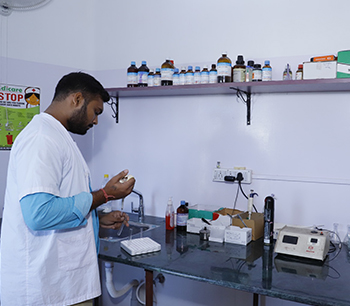
A test panel that identifies allergies to specific substances such as dust, pollen, certain foods, pet dander, insect bites, or medications.
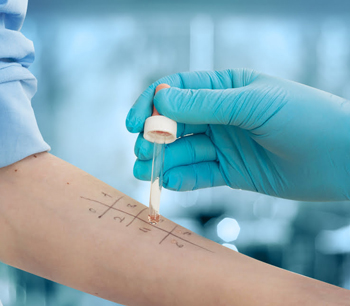
The study of blood, blood-forming organs, and related disorders. It includes the diagnosis, treatment, and prevention of blood diseases.
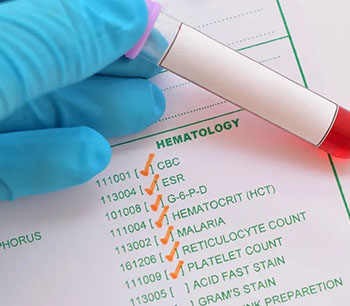
Focuses on diagnosing diseases by studying body fluids—such as blood, urine, stool, sputum, semen, and other secretions—through laboratory testing and microscopic analysis.
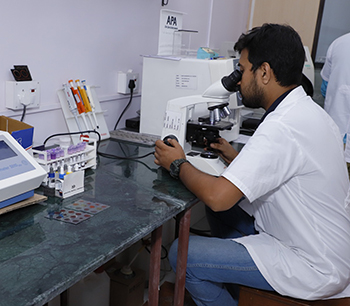
Involves detecting and identifying bacteria, viruses, fungi, and parasites that cause infections. This guides doctors in prescribing the right treatment.
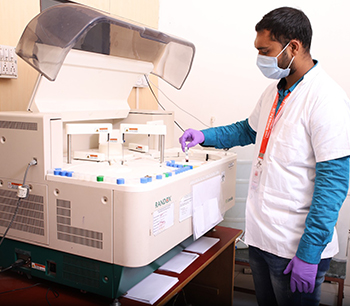
The study of individual cells to detect abnormalities, especially cancer. Samples are collected from body tissues or fluids and examined under a microscope.
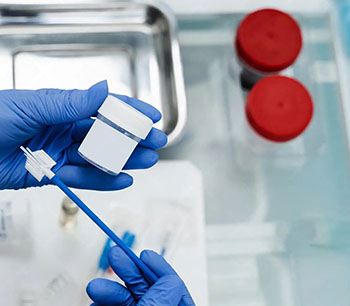
The microscopic examination of tissue samples to diagnose diseases, especially cancer and other chronic conditions. It is considered the gold standard for many diagnoses.
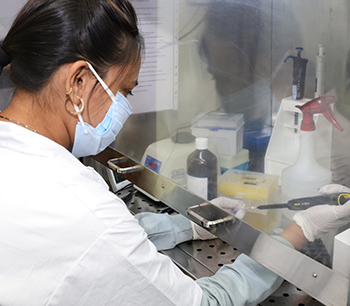
Computerized Pathology uses advanced digital systems to process, analyze, and report laboratory investigations with enhanced speed and accuracy. Automated instruments ensure precise testing for blood, urine, and other samples, minimizing human error and improving diagnostic reliability. With over a decade of experience, our center delivers highly efficient and accurate computerized pathology services for dependable clinical decision-making.
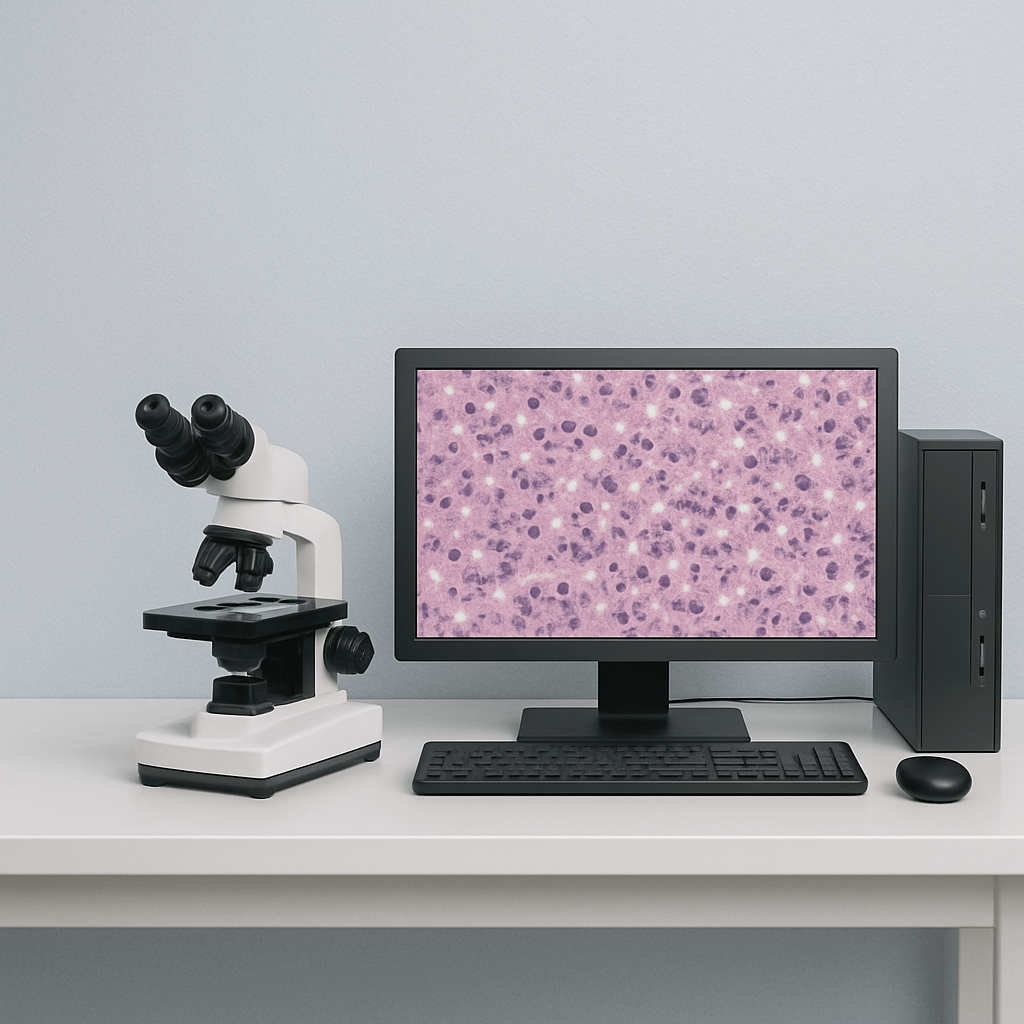
FNAC (Fine Needle Aspiration Cytology) and Biopsy are essential diagnostic procedures used to examine tissue samples for infections, inflammation, or suspected tumors. FNAC provides quick, minimally invasive cellular analysis, while biopsy offers detailed tissue evaluation for accurate diagnosis. With over a decade of expertise, our center performs FNAC and biopsy procedures with precision and care, ensuring safe sampling and dependable pathology results.
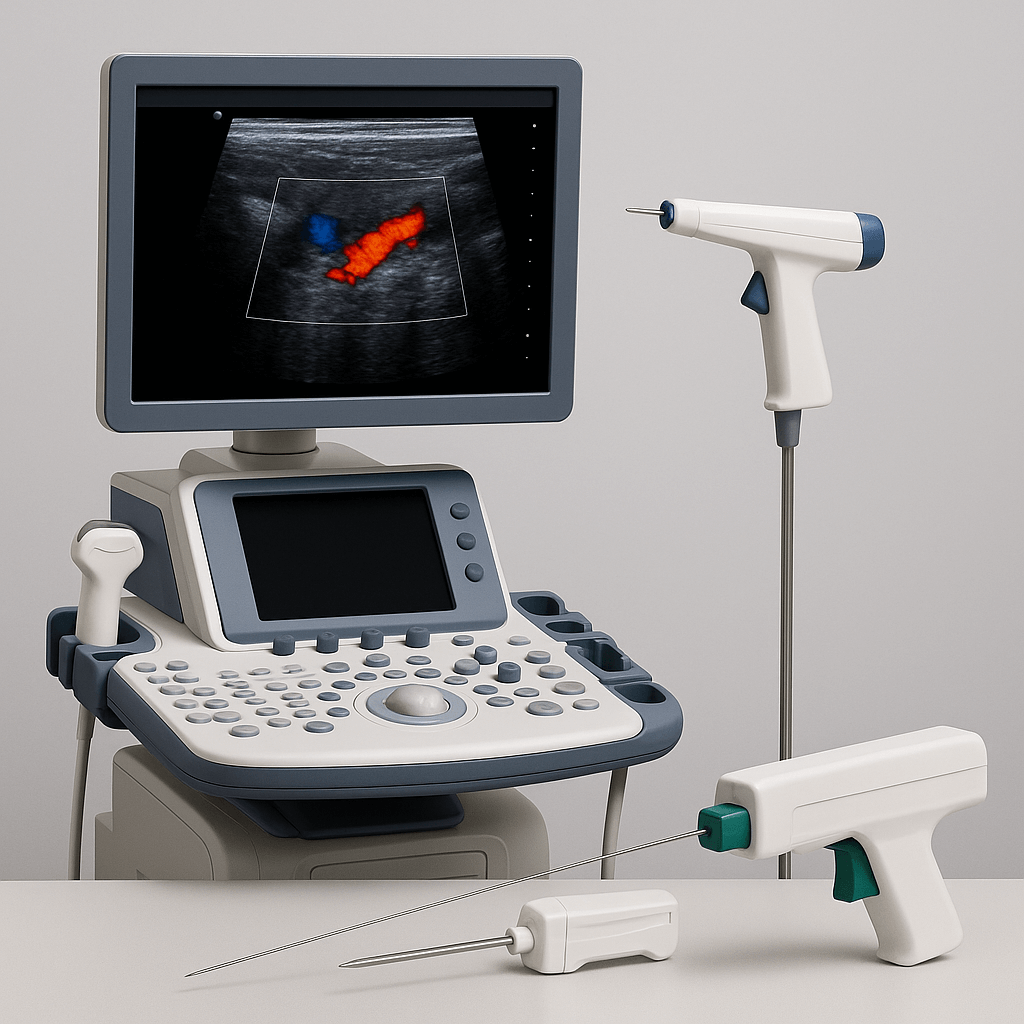
A Pap Smear is a simple and essential screening test used to detect early changes in cervical cells, helping identify infections, precancerous conditions, and cervical cancer at an early stage. It is a key part of routine women’s health evaluation. With over a decade of experience, our center performs Pap Smear testing with high accuracy and gentle care, ensuring reliable results for timely clinical guidance.
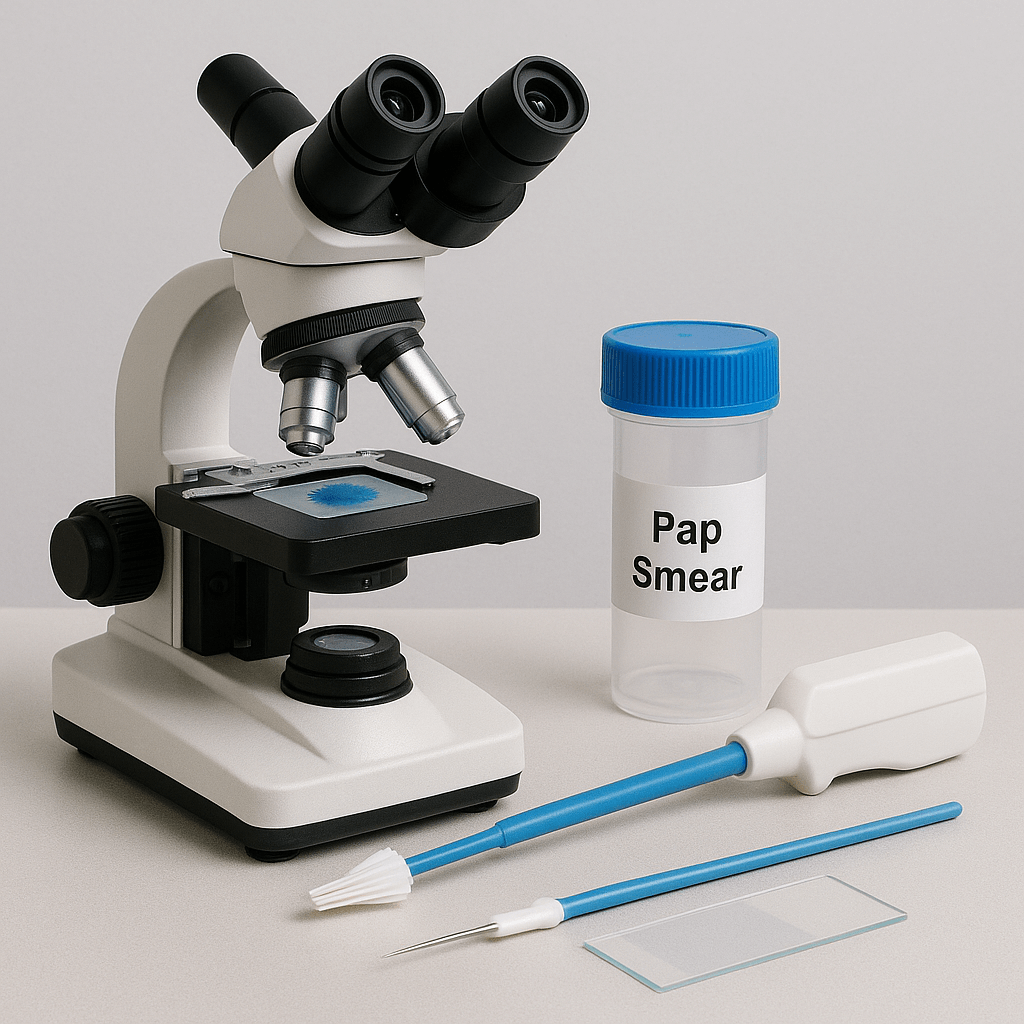
Bone Marrow Examination is a specialized diagnostic procedure used to assess blood cell production, detect hematological disorders, and evaluate conditions such as anemia, leukemia, or unexplained infections. It provides detailed insight into bone marrow function and cellular health. With over a decade of expertise, our center performs bone marrow tests with precision, safety, and thorough diagnostic accuracy.
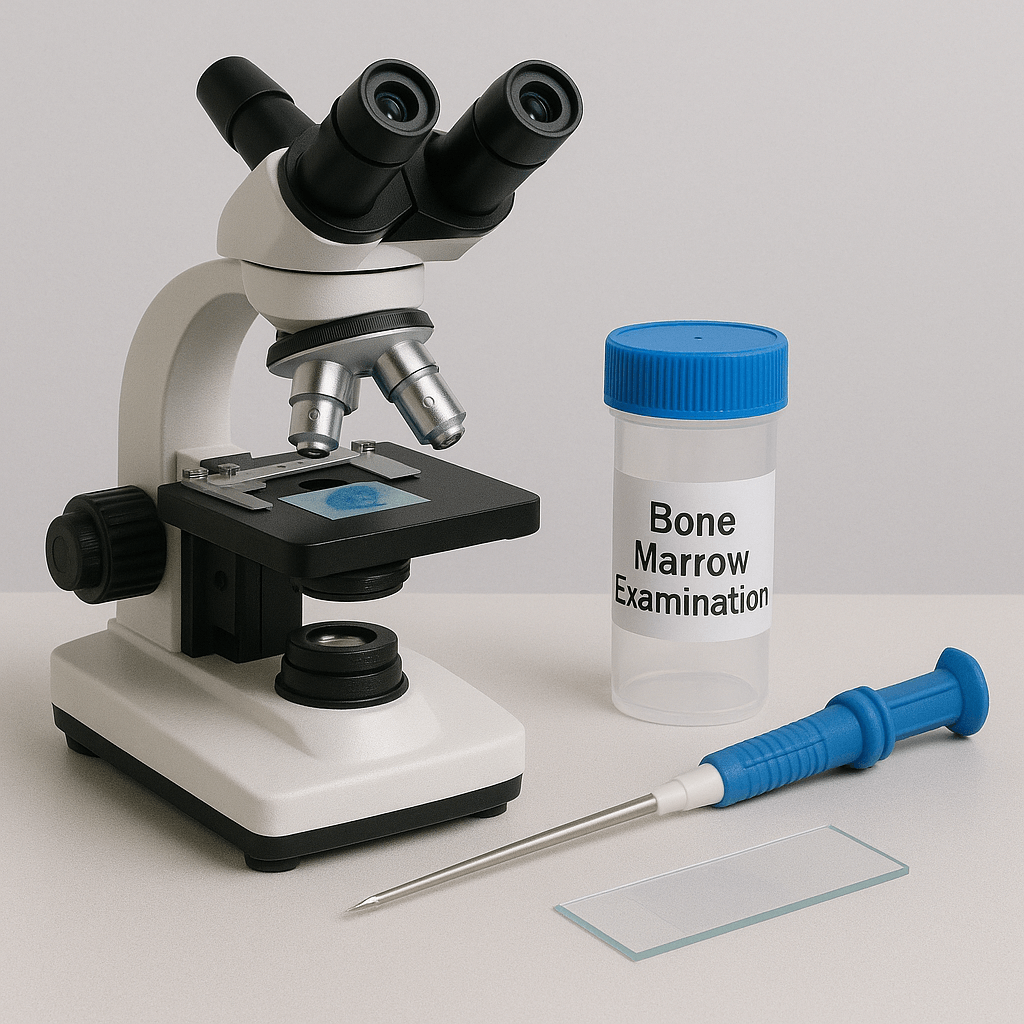
The RT-PCR (Reverse Transcription Polymerase Chain Reaction) test is a highly sensitive molecular technique used to detect viral genetic material with exceptional accuracy. It is widely used for diagnosing COVID-19 and other respiratory infections as well as various systemic and viral diseases. Saliva RT-PCR (COVID-19 & Respiratory Viruses): This method uses saliva collection tubes, spit funnels, or oropharyngeal/nasal swabs — no blood tubes are required. It is the most commonly recognized RT-PCR approach today for detecting COVID-19, influenza, RSV, and similar respiratory viruses. Blood-based RT-PCR (For Other Diseases): RT-PCR is also used for detecting viral loads and genetic markers in blood samples. This includes HIV, Hepatitis B and C, Dengue RNA, Zika, CMV, and other virology parameters, as well as certain cancer markers and genetic tests. In these cases, blood-filled tubes are typically seen in laboratory procedures. With over a decade of laboratory expertise, our center performs both saliva-based and blood-based RT-PCR testing with high precision, reliable processing, and timely reporting.
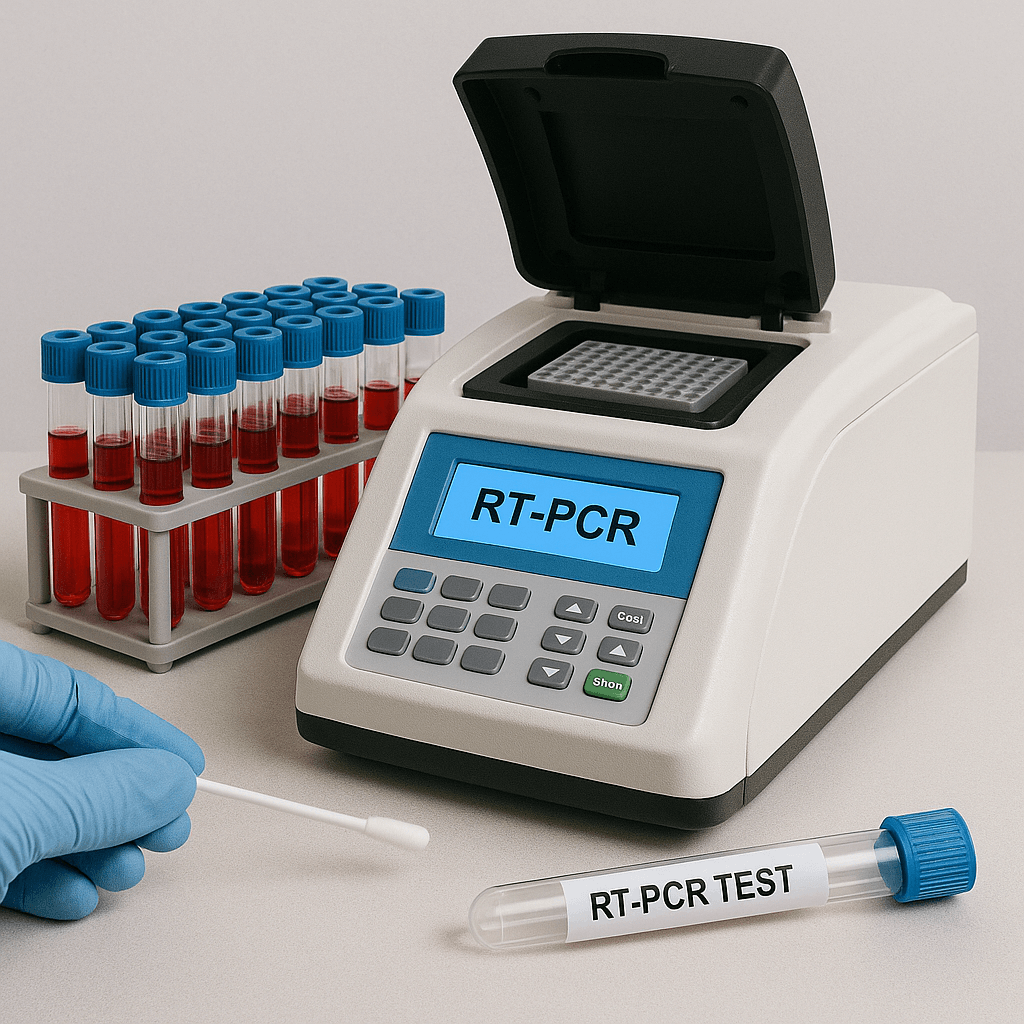
Our Home Collection service allows patients to provide blood, urine, or swab samples from the comfort of their homes, ensuring convenience without compromising diagnostic accuracy. Trained phlebotomists visit at scheduled times, following strict hygiene and safety protocols. With over a decade of experience in efficient sample handling and advanced testing, we ensure timely collection, secure transport, and reliable pathology results delivered straight to you.
